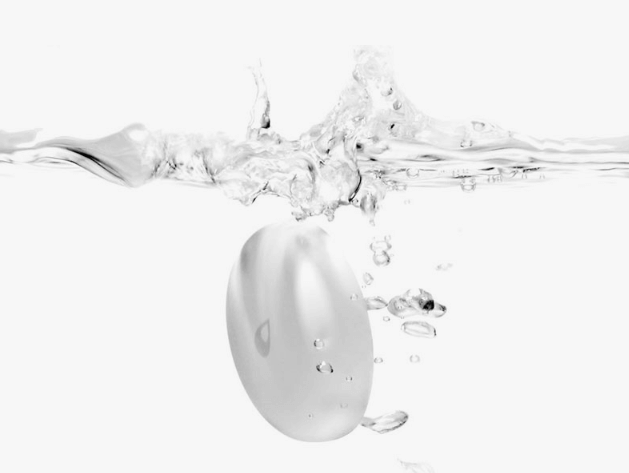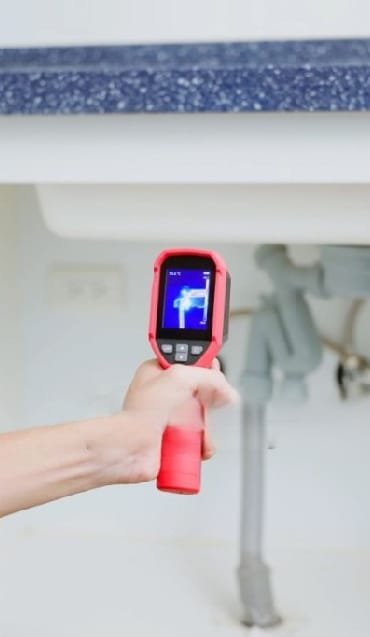Overview
If left unnoticed, water leakage—caused by plumbing issues, equipment failures, or normal wear and tear—can cause significant damage and costly maintenance. Water leak sensors are essential for early detection, helping businesses and homeowners avoid costly water-related disasters. The advantages of employing water leak sensors, their operation, the best options available, and how to choose the best one for your needs will all be covered in this book.
A Water Leak Sensor: What Is It?
A water leak sensor is made to find water where it shouldn’t be. Typically, it alerts consumers, enabling prompt action and preventing damage to the water. These sensors provide round-the-clock surveillance by being positioned in leak-prone areas near sinks, water warmers, and washing machines.
Advantages of Water Leak Sensor Use
Purchasing a water leak sensor has the following main advantages:
- Early Detection: Water leak sensors assist you in addressing issues before they result in serious damage by identifying water leakage as soon as they start.
- Preventing Water Damage: You may save costly maintenance by preventing leaks from destroying floors, walls, and fixtures using early warning signs.
- Decreased Insurance Claims: Water leak sensors may lower insurance premiums by preventing frequent claims for water damage.
- Enhanced Peace of Mind: If you’re frequently away from home or work, knowing your home or place of business is continuously being watched for leaks can be reassuring.
- Water Conservation: Early identification facilitates a better and more sustainable way of life and helps reduce water waste.
The Operation of Water Leak Sensors
Although the types and generation of water leak sensors vary, the basic principle involves sensing changes in moisture levels or the presence of water. The sensor often initiates one or more of the following reactions after detecting a leak:
- Mobile Alerts: Notifies you about a leak detection via your phone or smart home appliance.
- Audible sirens: When water is detected, many sensors sound loud to guarantee that the problem is immediately addressed.
- Automatic Shut-Off: Some better systems include built-in shut-off valves to stop water drift when a leak is discovered.
- Integration with Home Automation: By connecting these sensors to smart home systems, you can access and manage them from anywhere.
Water Leak Sensor Types:
When selecting a water leak sensor, keep in mind the type that best meets your needs:
Simple sensors that detect the presence of water and notify you are known as standalone sensors. They are ideal for low-cost, small-scale monitoring.
- Smart Sensors: Wi-Fi or Bluetooth-enabled sensors that communicate with your phone are ideal for remote monitoring.
- System-Integrated Sensors: These enable smooth interaction with smart devices and are a component of whole home automation systems.
- Automatic Shut-Off Sensors: Providing high-stage safety, these excellent sensors detect leaks and automatically cut off water glides.
The Best Qualities for a Water Leak Sensor
Look for the following essential features to get the most out of a water leak sensor:
- Instant Alerts: Verify that the sensor can accelerate and alert you via email, text messages, or app notifications.
- Battery Backup: To maintain functionality during power outages, choose a sensor with a battery backup.
- Wireless Connectivity: Using a cellular app, a sensor equipped with Bluetooth or Wi-Fi enables remote tracking.
- Simple Installation: Seek out sensors that are easy to install and need little preparation.
- Sturdy and Waterproof Design: These sensors must be strong enough to withstand moisture exposure and long-lasting in humid environments.
The Best Water Leak Sensors Available

- Flo using the Smart Water Detector from Moen:
- Features include battery backup, cell indications, and Wi-Fi enabled.
- Ideal For: Remote monitoring and intelligent home integration.
- Honeywell Water Leak Detector for the Home:
- Features include an extended cable sensor, app notifications, and audible signals.
- Ideal For: Cell notifications and flexible setup.
- Water Leak Sensor for Samsung SmartThings:
- Features include immediate indicators, a small design, and compatibility with the SmartThings app.
- Ideal For: Users of Samsung SmartThings for home automation.
- The GROVE Intelligent Leak Detector:
- Features include several sensor options, Wi-Fi connectivity, and Google Assistant and Alexa integration.
- Best For: Voice assistant integration with smart homes.
- LeakSmart Shut-Off Kit with Water Leak Sensor
- Features include real-time monitoring, cellular indications, and automatic shut-off.
- Best For: Automatic shut-off and complete safety.
Water Leak Sensor Installation Location
In areas where leaks are most likely to occur, place proximity water leak sensors to increase safety:
- Plumbing: leaks in kitchens and toilets can be easily found beneath sinks.
- Near Water Heaters: Prompt identification of water heater leaks helps to avert extensive harm.
- By Washing Machines: A sensor is essential since washing machine hoses might break or come loose.
- Around Toilets: Assists in looking for plumbing leaks that may go unnoticed.
- In Basements: Because basements are prone to flooding, leak sensors are a wise choice.
How to Pick the Best Water Leak Detector
While choosing a water leak sensor, take into account the following factors:
Make the sensor compatible with your home automation system, Wi-Fi, and phone.
- Range and Coverage: For large homes or buildings, you may require a sensor with a broader range or the option to add several sensors.
- Budget & Cost: While automated close-off sensors are often more expensive, standalone sensors are more affordable.
- Warranty and Support: A reliable product is indicated by appropriate assurance and prompt customer support.
- Integration with Smart Systems: If you run a smart home system, select sensors that easily integrate for simple operation.
How to Keep Your Water Leak Sensor in Good Working Order
- Frequent Testing: To ensure your sensors are functioning properly, test them regularly and change the batteries as needed.
- Clean the Sensor Area: Keep the area surrounding your sensor clean, as dust or other particles might interfere with its accuracy.
- Update Software: If your sensor is connected to a mobile application, update it to take advantage of new features and enhanced security.
- Check for Damage: Especially if the sensor housing is located in an area with high moisture levels, periodically check for indications of damage or harm.
- Assure Clear Connectivity: Ensure Wi-Fi sensors maintain a solid connection to avoid delayed indicators.
In conclusion
Sensors for water leaks are essential tools for protecting your house or place of business from unplanned water damage. These gadgets protect your property and provide peace of mind with instant signals, intelligent integrations, or even automatic shut-off capabilities. By selecting the right sensor for your specific requirements and placing it thoughtfully, you may lessen the likelihood of costly maintenance and water damage.



